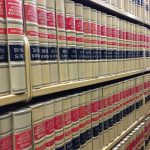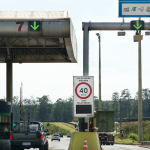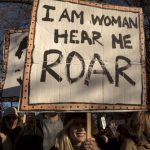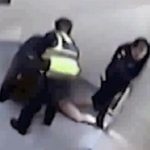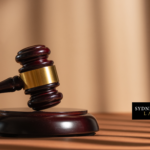Anti-Terrorism Laws ‘Go Beyond What is Proportionate’

Until the attacks on New York’s World Trade Centre on 11 September 2001, Australians were mostly unaffected by terrorism.
But since that atrocity, we have been drawn into a worldwide discussion about counter-terrorism, and have gradually moved away from the democratic ideals of individual liberties and legal safeguards towards greater state control.
Terrorism offences under the Criminal Code Act 1995 (Cwth) have been supported by a raft of laws giving police and other law enforcement agents access to our confidential information, immunity from prosecution for terrorism raids, protection against public criticism and special powers to deal with people they suspect of terrorism.
However, it is clear many Australians are becoming uncomfortable with strong and far-reaching national security laws that give the state more power and control than ever before.
President of the Human Rights Commission, Gillian Triggs, believes that recent laws which have been hastily passed by pointing towards a terrorism threat “go beyond what is proportionate”, threatening our freedom, citizenship and privacy.
Ms Triggs used her speech at the annual Human Rights Commission awards to raise concerns about our withering protections and liberties in the shadow of “overbearing” national security powers.
In particular, she questioned the need for unprecedented access to our personal information through data retention laws, special law enforcement powers against people that police suspect of terrorism, and laws allowing dual nationals to be stripped of their citizenship.
Ms Triggs presented Peter Greste, freedom of speech campaigner and journalist, with the 2015 Human Rights Medal.
Greste used his acceptance speech to echo her concerns about Australia’s reaction to terrorist threats, stating:
“The kind of thinking that put us in prison in Egypt, that’s using national security to lock up a bunch of journalists because they were reporting across the political spectrum, is I think the road we’re in danger of moving down in our own country—particularly in the rush to defend ourselves from terrorist attacks.”
Since at least 2009, the UN Human Rights Committee has expressed concerns about the vague legal definition of the term ‘terrorist act’, and provisions which allow for people suspected of terrorism offences to be detained for days without charge.
Despite attracting widespread criticism, the federal government continues to introduce more powerful national security legislation, particularly since the siege incident at the Lindt cafe in Sydney’s Martin Place in 2014.
Since that time, the federal government has introduced a series of laws aimed at increasing national security – using the siege and international terrorist acts as justification.
After the siege, NSW Premier Mike Baird called for stronger powers to be granted to NSW police through amendments to the Terrorism (Police Powers) Act 2002 (NSW).
Laws Before the September 11, 2001 Attacks
Shortly after the terrorist attacks in New York, a research paper presented to parliament titled “Terrorism and the Law in Australia: Legislation, Commentary and Constraints” recognised that our law enforcement agencies already had significant powers to deal with criminal conduct relating to terrorism-style activities.
Concerned about a dangerous power grab, the paper reminded parliament to closely scrutinise the necessity and likely effect of any reactionary new laws which proposed to bolster the powers of the state and its agents, stating:
“Before agreeing to augment those powers or offences, it is legitimate for Parliament to ask whether such laws are a necessary or appropriate part of the response to the events of 11 September 2001. The core issue here is proportionality and the appropriate balance between safety and liberty.”
As the state becomes stronger and our democratic liberties and protections are taken away, many are asking the very same question today – albeit cautiously given laws which criminalise speaking out against certain types of conduct including;
– unjustified terrorism raids,
– human rights abuses in detention centres,
– operations on offshore boats, and
– crime and corruption within governments and police forces.
We now have an environment where people who are concerned about the loss of liberties and protections are thinking twice before speaking out, amidst fears of being criminally prosecuted; or worse, being labelled by unscrupulous law enforcement agents as a suspected terrorist and subjected to all that comes with it.


